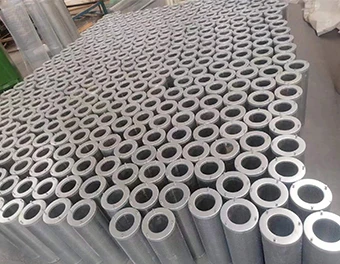 Tel:
+8615930870079
Tel:
+8615930870079
Oct . 12, 2024 04:49 Back to list
HEPA Cartridge Filter for Enhanced Air Quality and Allergens Reduction Solutions
Understanding HEPA Cartridge Filters A Comprehensive Overview
HEPA (High-Efficiency Particulate Air) cartridge filters have emerged as essential components in various applications, ranging from residential air purification to industrial dust control. Their ability to capture airborne particles with high efficiency makes them indispensable in environments where air quality is critical.
What is a HEPA Filter?
A HEPA filter is designed to trap particles as small as 0.3 microns, boasting an efficiency rate of 99.97%. This means that for every 10,000 particles that reach the filter, only about three will pass through. The filter's construction typically includes a dense mat of randomly arranged fibers, which works to capture allergens, dust mites, pollen, pet dander, mold spores, and even some bacteria and viruses. The performance of HEPA filters is standardized by the U.S. Department of Energy and the European Committee for Standardization; hence, when you see the HEPA label, it's a guarantee of quality.
Applications of HEPA Cartridge Filters
HEPA cartridge filters are incredibly versatile, serving a wide range of industries and applications
1. Home Use Many households use HEPA filters in air purifiers and HVAC systems to improve indoor air quality, particularly for allergy sufferers. These filters aid in reducing the risk of respiratory issues caused by airborne pollutants.
2. Medical Facilities In hospitals, HEPA filters are crucial in maintaining sterile environments. They are employed in operating rooms and laboratories where controlling airborne contamination is paramount to patient safety and research accuracy.
3. Industrial Settings Factories and manufacturing plants utilize HEPA filters in dust collection systems to protect workers from inhaling harmful particles. Industries dealing with fine powders, chemicals, or biological materials benefit immensely from the efficiency of these filters.
hepa cartridge filter

4. Automotive Applications HEPA filters are integrated into many vehicles to improve cabin air quality. They ensure that harmful pollutants from the outside environment do not infiltrate the passenger compartment.
Maintenance and Replacement
To ensure optimal performance, HEPA cartridge filters require regular maintenance. Depending on the specific usage conditions, filters should be replaced according to the manufacturer’s guidelines—typically every 6 to 12 months for home use. In industrial applications, the replacement frequency may vary based on the volume and type of particulates being filtered.
While HEPA filters are highly effective, they can become clogged over time. Clogging reduces airflow and can strain HVAC systems or air purifiers, leading to increased energy consumption and potential system failures. Regular inspections can help mitigate these issues.
The Environmental Impact
HEPA filters are generally made from synthetic materials, which raises questions about their environmental impact. However, many manufacturers are now creating HEPA filters with sustainability in mind. Options made from recyclable materials are becoming more common, and initiatives to promote responsible disposal are also gaining traction.
Additionally, using HEPA filters can contribute to energy savings. By improving air quality and systems' efficiency, these filters can lead to better overall energy performance of heating and cooling systems, ultimately benefiting the environment.
Conclusion
HEPA cartridge filters play a significant role in protecting our health by improving air quality in various settings. With their high filtration efficiency, these filters are indispensable tools against allergens and pollutants. As awareness of indoor air quality continues to grow, the demand for HEPA filters is likely to increase, driving innovation and sustainability in this essential industry. Whether for home use or industrial applications, understanding HEPA filters empowers users to make informed choices about their air purification needs, highlighting the importance of maintaining clean air for health and well-being.
-
Nano Fiber Technology: Revolutionizing Cartridge Dust Collector FiltersNewsAug.06,2025
-
How Activated Carbon Air Cartridges Eliminate OdorsNewsAug.06,2025
-
Dust Filter Cartridge Handling Fine Particulate MatterNewsAug.06,2025
-
Cartridge Dust Collector Filter for Welding Fume ExtractionNewsAug.06,2025
-
Activated Carbon Filter Cartridge Effectiveness Against VOCsNewsAug.06,2025
-
Activated Carbon Air Filter Cartridge Benefits ExplainedNewsAug.06,2025

 Email:
Email:





